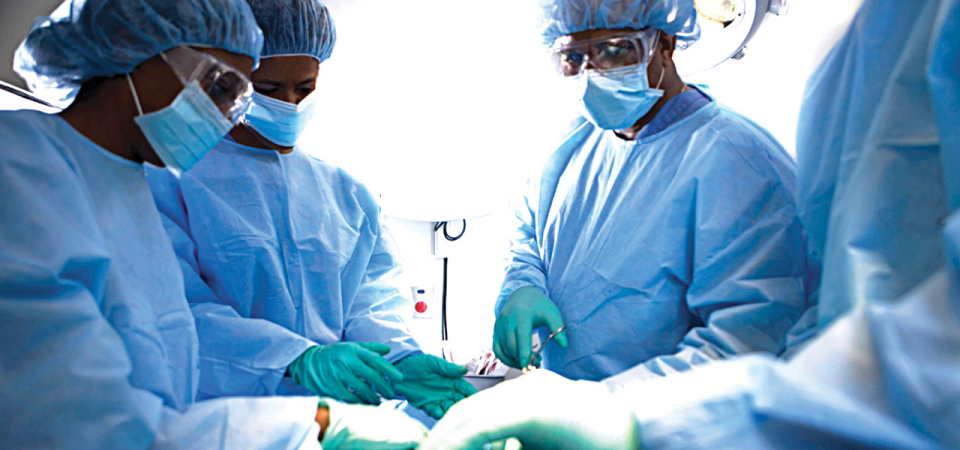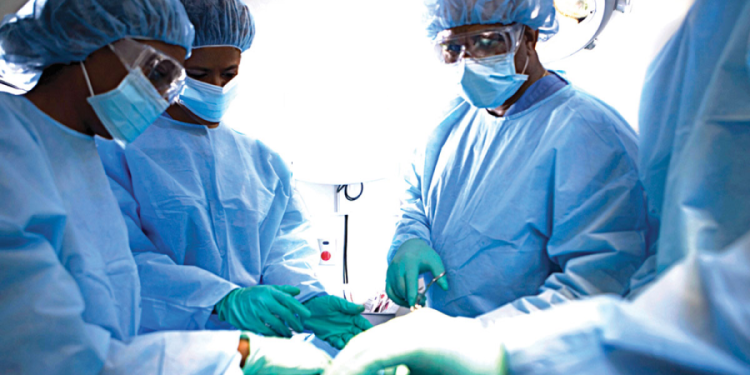 They settled on the decision at the Lunch and Learn partners commitment meeting coordinated by theMissionary Suleman intended to be killed during assault – Suspect Clina-Lancet labs in Abuja on Friday.
They settled on the decision at the Lunch and Learn partners commitment meeting coordinated by theMissionary Suleman intended to be killed during assault – Suspect Clina-Lancet labs in Abuja on Friday.
Dr. Felix Ogedegbe, Managing Director and Chief Executive Officer of Cedarcrest Hospitals, made the remarks at the event that the provision of healthcare services in Nigeria is poorly regulated.
“If you move around in the West Africa region, Africa, or the rest of the world, you will find that Nigeria’s healthcare space is one of the unregulated spaces in the world,” Dr. Ogedegbe stated. Pharmacists, chemists, and hospitals are free to do whatever they please. Individuals are free to do whatever they please. Thus, guideline is urgent in light of the fact that it guards individuals in the medical services space.
Additionally, it encourages sector investments. If you invest billions of naira in healthcare and others can do anything, you won’t get anything; however, if there are regulations to ensure that the interface is designed so that people can come to you for services, you will invest more.
As per him, the absence of guideline is slowing down the development of the medical care framework in the country.
“If you look at the pharmaceutical industry, for example, once you leave the urban areas, you will be aware of what happens with patent medicines and that the regulation is not as expected.
Ogedegbe continued, “The regulation space in the country is very poor at the moment” because “in other countries, the definition of a hospital is clear.”
In addition, Dr. Olayemi Dawodu, CEO of Clina-Lancet laboratories, stated that partnerships in the health sector are required to achieve universal health coverage.
She said the commitment meeting gives a gathering to cooperations with partners and clients to give wellbeing training to great help conveyance in the country.
“It is very important for each of us to put into practice what we say we do very well. In addition, strategic partnerships are required so that we can jointly provide universal health coverage, which is one of the driving forces behind the UN’s Sustainable Development Goals.
“Doing it single-handedly is less of an effect than when you do things together in light of the fact that you can cover more grounds in a brief time frame,” Dr Dawodu noted.
She also stated that regulation is required because clinical laboratory services are not as competitive as anticipated.
“We really want to teach the networks on the significance of paying special attention to offices that have authorization.
“There is contest in the clinical research center administrations space yet I don’t see them as suitable until we have fundamental principles for license,” she said.
Dr. Kingsley Odiabara, Director of Medical Laboratory Services at the Federal Ministry of Health, reiterated that clinical laboratory services must be regulated.
Dr. Odiabara, who was represented in the ministry by Dr. Janet Agba, the Deputy Director of Hospital Services, stated, “We must regulate laboratory services.” You might observe one non-governmental organization doing one thing and another NGO doing the same thing, for instance.
“In this way, we need to manage who does what and the regions individuals ought to zero in on. That way, healthcare will be easy to get, even in hard-to-reach places. At the point when everybody centers around doing what the individual in question realizes to do best, the nation will be better and there will be widespread wellbeing inclusion.”









